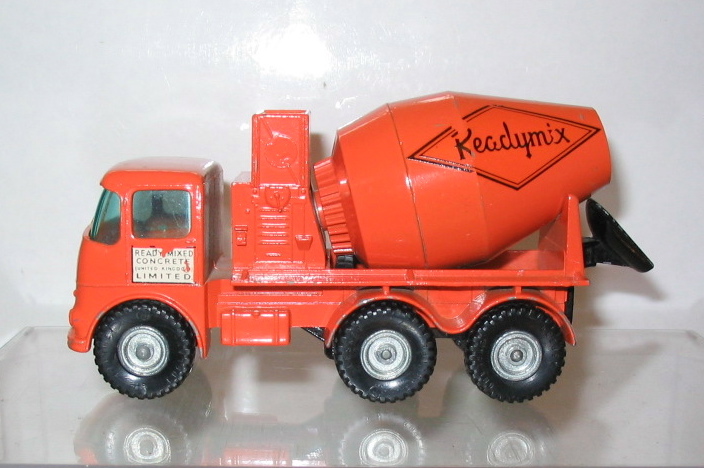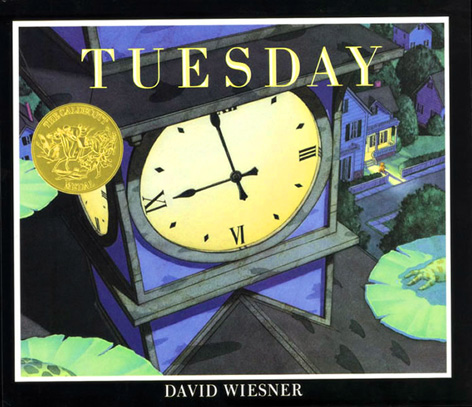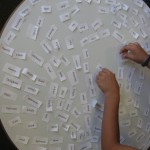Our fourth graders topped off their Dewey Decimal System study by creating commercials advertising their sections. Please stop by the Lower School Library connect page to view the commercials!
Category Archives: student work
Fourth Grade Wordle Recommendations

After this was completed, fourth graders copied their text into the online wordle tool ( http://www.wordle.net ). This free tool takes text and blows it up into word clouds. The more times a word appears, the bigger it is in the cloud. Students manipulated their word clouds, and then printed a copy out. Kate and Steve’s class has their reviews up on the library bulletin board, and Dina and Hilary’s class has their reviews in the classroom. Many students were quite excited about this tool. Why not ask your 4th grader how to create a wordle and play around a bit at home?
The iPads are Here!
Third and fourth graders are part of a brave new world here in the Lower School. They are the lucky participants in an iPad pilot program.
Teachers and specialists have been busily spending time finding ways that the iPads make sense as a tool for Lower School students. While many schools (especially middle and high schools) have jumped in head first, we are taking our time and finding ways to utilize this latest technological tool in a developmentally appropriate way.
Integration is the key.
Third graders took part in an iPad scavenger hunt during library class last week. Celeste came down, and she and I guided the students through a series of tasks designed to familiarize the students with the iPads. From simply learning how to lower the volume or work the case, to finding the best app for the task required, third graders excitedly got down to business. ( A favorite task was finding their school and their homes in google maps ).
We will keep you updated on how our students are using the iPads in their curriculum!
Poetry Fun!

As most of you know, April is National Poetry Month, and in the library we have been having some fun!
Third graders used laptops to create some magnetic poetry! How can they do that, you ask? Well, with the help of a super fun site of Magnetic Poetry Games ! Students paired up, negotiated how they would create their poems, and started clicking and dragging.
There’s nothing like the sound of laughter in the library!
Tweet, Tweet!
 Yesterday there was a rally at City Hall in the name of NYC Libraries Day. The budget of the city’s public libraries are once again on the table to be slashed. Many activists turned out to voice their displeasure with the proposed budget cuts to these vital institutions.
Yesterday there was a rally at City Hall in the name of NYC Libraries Day. The budget of the city’s public libraries are once again on the table to be slashed. Many activists turned out to voice their displeasure with the proposed budget cuts to these vital institutions.
Many of us, including 4th graders, could not attend the rally, and took to twitter instead.
I asked students if they knew what Twitter was, and if they knew why people use Twitter. Roughly half of the class of 4th graders had heard of it, but most thought it was used primarily by celebrities and people who need to “talk to fans”. We talked about the fact that both LREI as an institution and the LREI libraries have twitter feeds, and while these feeds may be used to talk with our fans, they are also used as sources of information dissemination and a place where people and places can make political statements.
Using the hashtag #savelibraries, the 4th graders composed tweets to show why they think libraries are important. Before the writing began they were made aware of the 125 character limit (to account for the hashtag), as well as the fact that positivity may be more effective than simply bashing politicians. Some of their tweets read as follows:
People need libraries for quiet places to read or to do homework. People need computer access. #savelibraries
Kids need safe places to focus. #savelibraries
Imagine if you couldn’t afford to buy books, & the only other way to read was a library and then there were none. Imagine. #savelibraries
Imagine if we didn’t have libraries. We wouldn’t be able to read books. #imagine #savelibraries
Some students even came up with matching campaigns. The “imagine” campaign, as well as figuring out that they could call themselves SFL (Students For Libraries). This was a very empowering exercise that demonstrated that you can have a voice and be part of a cultural conversation regardless of age.
Follow us on twitter @lrei_lib
Poetry in Motion
 Most of you know that April is National Poetry Month. But here in the LREI Library we like to integrate poetry into lessons all year long. Recently, the 2nd grade took a look at concrete poetry. “What is concrete poetry?” was the first question that was asked. A few students were familiar with the term and explained it to their peers by calling them shape poems. We read through some collections of poetry that feature concrete poems and then decided to work on our own!
Most of you know that April is National Poetry Month. But here in the LREI Library we like to integrate poetry into lessons all year long. Recently, the 2nd grade took a look at concrete poetry. “What is concrete poetry?” was the first question that was asked. A few students were familiar with the term and explained it to their peers by calling them shape poems. We read through some collections of poetry that feature concrete poems and then decided to work on our own!
The 2nd graders were given free choice as to the topic of their concrete poems. Some were inspired by pets, favorite foods, friends, shapes and places.
Please come by the library and take a look at the bulletin board. Maybe you will be inspired to create your own concrete poem!
Caldecott of Caldecotts
The second grade has been reading the Caldecott winners of the past. We have been talking about storytelling and the role of illustration within a story. Some of the questions that we asked during library were; “Are illustrations simply an add on, or are they integral to the story?” “Can you tell a story with only pictures?” “What kind of illustrations speak to you?”
As a group second graders read 12 Caldecott winning titles of the past and had the task of figuring out which winner they thought deserved the title of Caldecott of Caldecotts. We strayed from traditional Caldecott format and had a secret ballot, and the book that came out on top was David Wiesner’s TUESDAY. TUESDAY won the Caldecott Award in 1992.
 The humor found in the illustrations was definitely a factor with our second grade audience. Frogs flying on lily pads? Frogs zooming all over town? Why don’t you come on by the library and check out a copy for yourself to see what captivated our students!
The humor found in the illustrations was definitely a factor with our second grade audience. Frogs flying on lily pads? Frogs zooming all over town? Why don’t you come on by the library and check out a copy for yourself to see what captivated our students!
National Poetry Month Activities
As April is National Poetry Month, we took some time during library to think about poetry. One of the activities that 3rd graders did during class was to create some magnetic poetry. I first created a magnetic poetry kit with a combination of nouns, verbs, adjectives, adverbs, exclamations and interjections, articles and conjunctions. The third graders then combined the words into poetry. They had the freedom to decide how to structure the poem. Some of the questions they considered were – “Do I like the sounds of these words together?” — “Am I trying to tell a story?”, and “Do the ideas of these words go together?”. The students dove right in, working on poems individually and together. We noted the transient nature of the magnetic poem as they borrowed words from one another, and shuffled their poems away. We took several photos of the poems and a few videos as well. If you’d like to create your own magnetic poetry set with your child with the words of your choosing, please drop by the library for a copy of the instructions.
3 stars, 4 stars, 5 stars
 The next time you visit LREI’s library catalog, things might look a little different.
The next time you visit LREI’s library catalog, things might look a little different.
Last week, third graders used their book recommendations that they published in their classrooms to update the library catalog. They were asked to think about the book that they reviewed, and first decide whether the book merited 3, 4, or 5 stars. They then transcribed their recommendation into the book’s record.
For an example, follow this link.
In the future, there will be more ratings by our students! Please visit http://library.lrei.org often to see what our students think of the books that they are reading!




